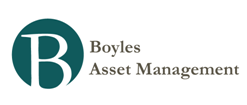Hussman Weekly Market Comment: Not Over by a Longshot
On Friday, the yield on 1-year Greek government bonds closed above 135%. As I've noted in recent weeks, the bond markets continue to reflect expectations of certain default on Greek debt. All they are working out now is the recovery rate. As of last week, the expected recovery rate implied by bond prices stands at about 43% of face value. Since Greece is still running a primary deficit (it can't pay its bills even if debt servicing costs drop to zero), my impression is that the eventual default may be even worse. Still, if I were to venture a guess, it would also be that Greece will be given a small amount of new funding in the coming weeks in order for the government to continue running and delay the inevitable. The reason is that Europe needs time to better prepare for a default, and European leaders appear to be scrambling to get banks to bolster their capital as quickly as possible (somehow investors responded to that news with a short-lived rally last week, as if the need to accelerate the timeline for banks to acquire additional capital is a good thing).
If you're attentive to how European leaders are phrasing things these days, you'll notice that (except for officials in Greece) they've stopped saying that Greece itself will not be allowed to default, and instead insist that the European financial system and the European monetary union will be defended. While it's possible that the equity markets will mount a relief rally in the event of new funding to Greece, it will be important to recognize that handing out a bit more relief would be preparatory to a default, and that would probably be reflected in a failure of Greek yields to retreat significantly on that news.
- Links
Back from vacation with some links... Memo to China: You Are Doomed to Fail - by Jason Zweig (LINK) Sanjay Bakshi: SEVEN INTELLIGENT FANATICS FROM INDIA (LINK) Wilbur Ross: Here's the real goal of Greek deal (LINK) Barry Ritholtz talks to Leon...
- John Mauldin: The Good, The Bad, And The Greek (risks)
Greece was (and is) the first real test of the euro. Until the Greek crisis, there was no real need for any eurozone country to actually write a check for any other member. Ireland obligingly shouldered the responsibility for its own bad bank debts, paying...
- Hussman Weekly Market Comment: Whipsaw Traps
With respect to Europe's perceived "solution" to its debt crisis, the 50% write-down of Greek debt is appropriate (better than 21%, but probably still light), but it's not clear that this includes a writedown of Greek obligations to "official"...
- Hussman Weekly Market Comment: Preparing For A Greek Default
The yield on 1-year Greek government debt ended last week at 110%, down slightly from a mid-week peak of 130%. Even with the pullback, the Greek yield structure continues to imply default with certainty. All the markets are really quibbling about here...
- John Mauldin: Kicking The Can Down The Road One More Time
My friends at GaveKal point out that this is “… the sixth time in 18 months European leaders have announced a definitive solution to the Euro crisis. Should this version of the final bailout be taken any more seriously than the first and second solutions...

